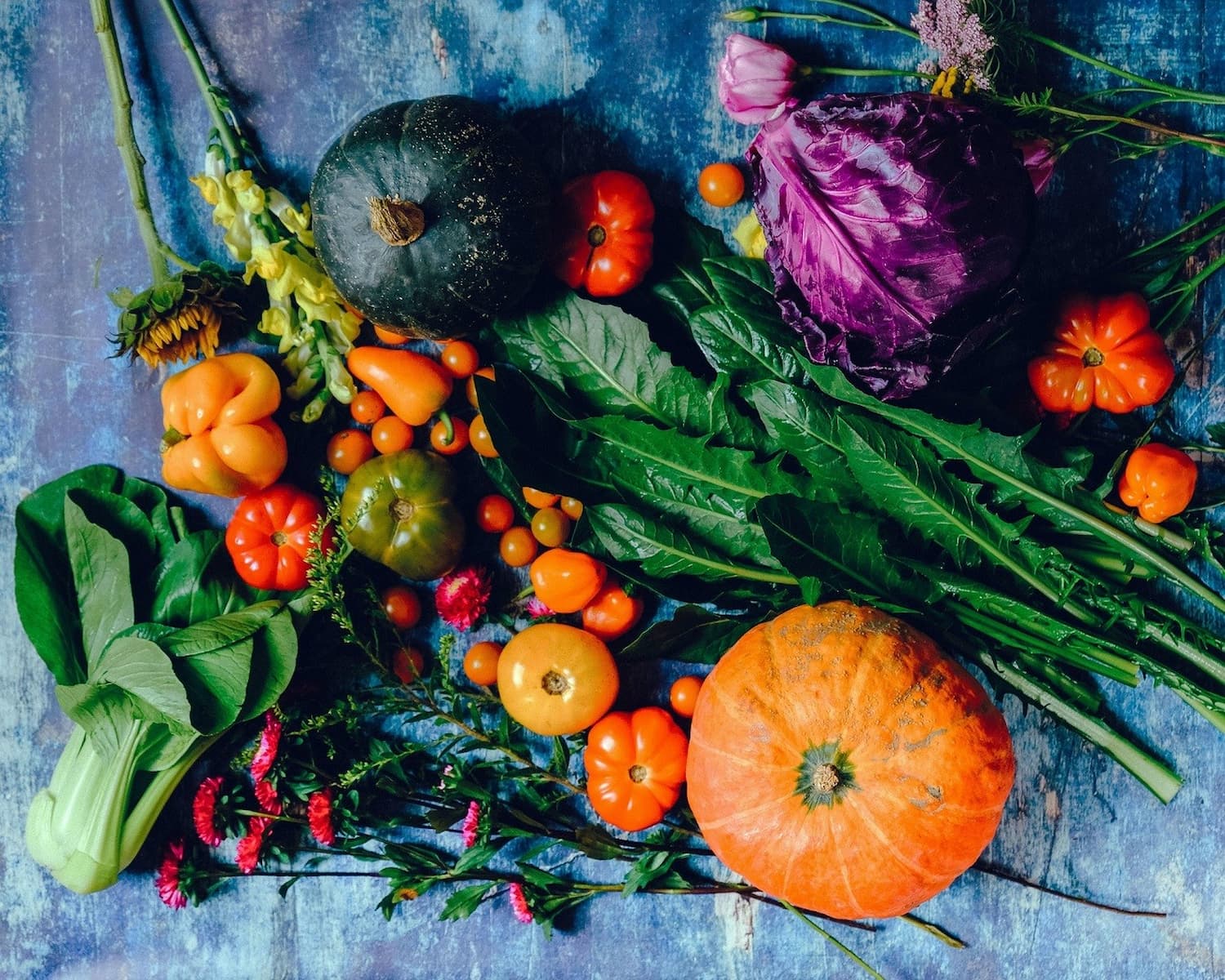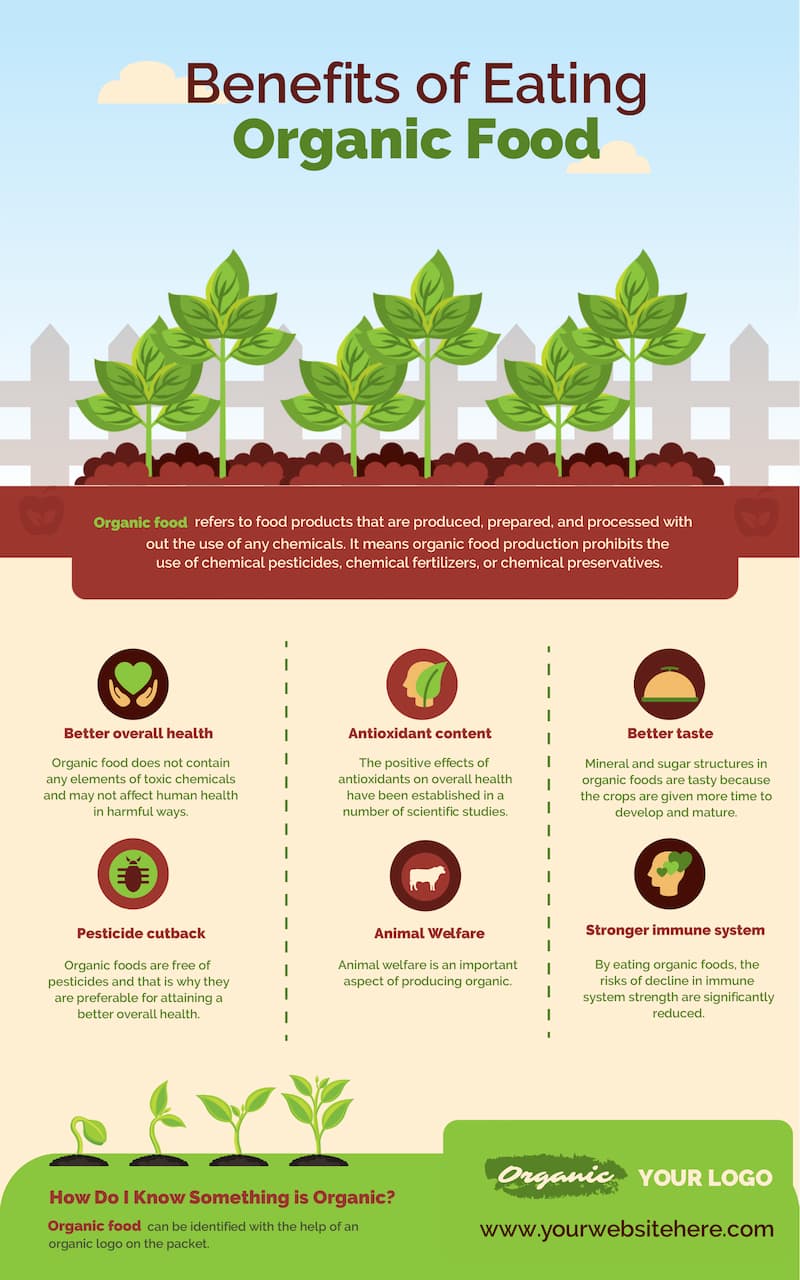
Organic food is simply food that has been grown naturally, without the use of artificial fertilisers, synthetic pesticides, synthetic drugs, or anything else that has been man-made. Organic food is higher in nutrients and tastes better than food that has been grown by commercial farming processes and is much more environmentally friendly.
Organic Farming
Organic farming is carried out in order to produce healthy food from healthy soil. There are very strict standards on what organic farmers can and cannot do. For example, there are severe restrictions on the use of synthetic chemicals and fertilisers, as well as exposure to pesticides and genetic modifications of plant and animal products. In farming practice, there is a strong emphasis on plant and animal welfare, such as careful planning, crop rotation and natural methods of pest and weed control. It's vital to keep animals healthy by feeding them an organic diet instead of drugs like synthetic growth hormones, antibiotics and worming treatments.
To ensure soil fertility and prevent soil erosion, organic farmers use a method known as crop rotation. Crop rotation simply means that different things are grown or raised in a field each season. For example, a farmer might graze sheep in a field before moving the sheep and planting wheat in their place. Farmers also use green manure, compost and natural mineral products in order to maintain the soil’s natural fertility. Fresh manure is usually composted to ensure microbial safety. Genetically modified organisms (GMOs) are also strictly prohibited at any stage of organic food production.
Health Benefits
Organic food benefits us physically in a number of ways. Firstly, organic food has a higher mineral content than conventional food products. Secondly, organic products don't have residues of chemical pesticides, which reduces the risk of cancer, food poisoning and other health risks. Furthermore, organic crops have more fibre and antioxidant content, while organic meat is leaner with less fat than its conventionally produced counterpart. Other health benefits of organic products include:
- higher amounts of vitamin C
- higher amounts of omega-3 fatty acids
- lower water contents, making minerals and other nutrients more concentrated
- fewer potentially toxic nitrates
- higher levels of antioxidants
- no pesticide residue
- not genetically modified (GM free)
- natural pesticides produced by plants can help fight cancer
- no toxic metal contamination
- strengthened immune system
- superior taste
It has been shown that, on average, organic fruits, vegetables and meat contain up to fifty percent more vitamins, minerals, enzymes and other nutrients than non-organic foods that have been farmed conventionally. Organic foods are also not allowed to contain artificial colourings, flavourings or preservatives.
The methods followed on organic farms also have a positive environmental impact because they have a lower carbon footprint. Not using harmful chemicals on plants and animals prevents the leakage of all types of chemical residue that can contribute to sewage sludge and environmental pollution, particularly water pollution, which is lethal.

Source: easelly
Is It Really Organic?
So, how can you tell if organic food is really organic? In Australia, any produce sold from organic farming practices must display a certification symbol or number by law. The symbol means that the product meets government standards. Certification of organic produce is carried out by any of the seven organisations that have been accredited by the AQIS (Australian Quarantine and Inspection Service).
Certified organic produce must be grown, harvested, prepared and transported in ways that ensure that the produce is not contaminated by any synthetic chemicals, fumigation or irradiation.
Tips for Transitioning to Organic Food
Organic agriculture was developed to protect human health by encouraging farmers to grow organic foods, which have the added benefit of containing less chemical contamination. If you want to shift to organic food products and help prevent environmental pollution in addition to the negative impacts of their conventional alternatives, here are some tips to help you achieve a sustainable diet:
- Start small by buying a couple of organic products at your local grocery store next time you go shopping. You can start with one box of organic milk and one kind of fresh produce. Make sure to thoroughly read organic food labels sold at health food stores to ensure that you're getting the right thing.
- If you don't think you can commit to eating 100 percent organic, make one meal a week entirely organic; combining non-organic foods with organic ones for every meal is also a great way to develop an organic diet.
- Try organic mixed vegetables or fruits in a salad at least once a week.
- Check organic food blogs for organic recipes and organic meal planning ideas.
Following a healthy lifestyle does not necessarily require eliminating or replacing conventional meats, fruits and vegetables with organic food products. Given the high production costs of organic farming methods, adhering to a purely organic diet may put a financial strain on you. So long as you stick to the habit of eating fresh foods rather than fast food or takeaways, you'll be able to stay healthy and disease-free.
Originally published on May 24, 2007








